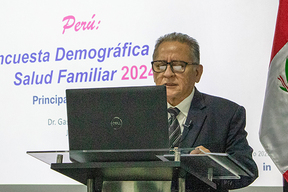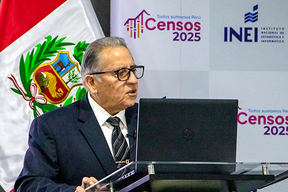Percentage of women that want to have children decreases
Nota de prensa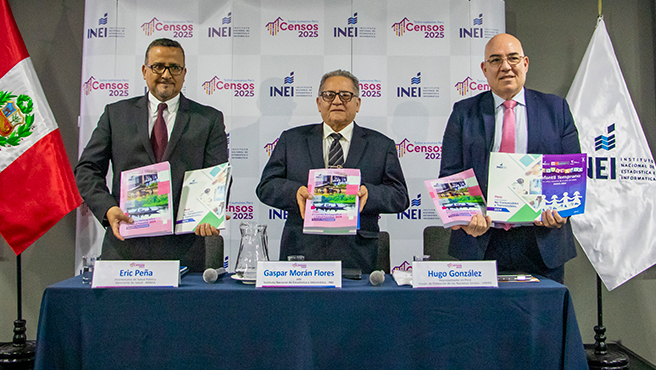
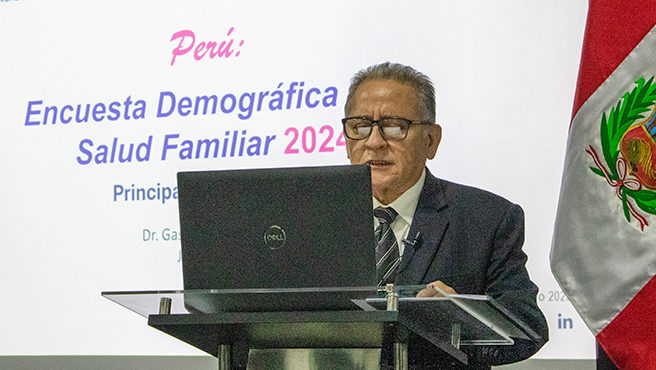
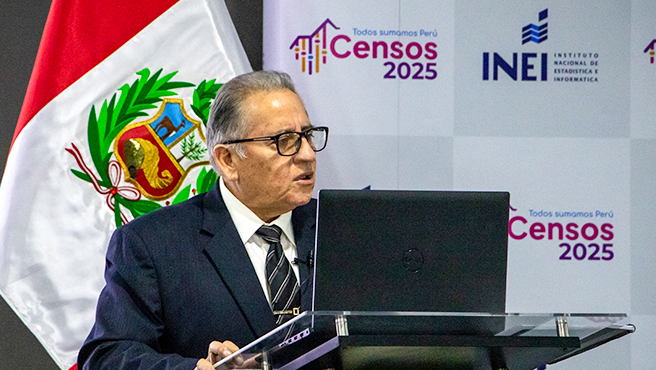
28 de May de 2025 - 2:30 p. m.
The National Institute of Statistics and Informatics (INEI) presented the results of the Demographic and Family Health Survey (ENDES) 2024, that revealed that 65.9% of married women or cohabitants do not want to have children, meanwhile that 30.7% want to have children. This last figure represented a decrease of 0.4% percentage point compared with the year 2023, when 31.1% expressed this desire.
Among women who are cohabitant that stated they want to have more children, 9.9% want to have them in less than two years.
The presentation event was led by the Doctor Gaspar Morán Flores, chief of the INEI, who was accompanied by Eric Peña, vice minister of public health of the Ministry of Health (MINSA), and Mr. Hugo González, representative in Peru of the United Nations Population Fund (UNFPA) and Leendert Nederveen representative of the Pan American Health Organization: PAHO/WHO.
BIRTHS
During the year 2024, 38.2% of the childbirths were by cesarean delivery, a proportion that continues to grow compared to the last year (37.8%). The highest rates of cesarean deliveries were registered in Lima Metropolitan area (50.0%), Moquegua (49.9%) and Arequipa (49.8%).
PREGNANCY
According to the results of the ENDES, the Total Fertility Rate (TFR) was of 1.8 children per women in child-bearing age (15 to 49 years old). In the rural area, the rate was of 2.9 children per women, meanwhile that in the urban area was of 1.5 children per women.
54.5% are women from 12 to 49 years old
The INEI stated that according to 2024 ENDES, 54.5% of the women of the country are between 12 to 49 years old. From this last percentage, 47.1% are married or co-habitants, 35.7% had studied superior studies and 66.9% has a Comprehensive Health Insurance (SIS).
Age of starting sexual intercourse was 18.3 years old
The median age of starting sexual intercourse in women of 25 to 49 years old was of 18.3 years old. This start of sexual relations, took place on average, a year before in the rural area (17.5 years old) compared to the urban area (18.5 years old).
Use of contraceptive methods
68.1% of co-habitant women of 15 to 49 years old use some method of family planning, according to the Technical Rule of Health N°124-2016-MINSA-v01. The temporary methods are the are the most widely-used (56.5%), being the injection (18.2%) and the male condom (13.2%). On the other hand, 11.6% use definitive methods, such as the female or male sterilization.
Family violence
33.9% of women reported having been a victim of domestic violence at the hands of their husbands or partners in the last 12 months, a slight decrease compared to 2023 (34.5%).
The departments with greater levels of violence in the last 12 months were Apurímac (50.1%), Constitutional Province of Callao (42.3%) and Cusco (39.5%). On the other hand, the lowest levels were reported in Tacna (14.2%), Ucayali (21.0%) and Cajamarca (21.7%).
44.6% of women sought help in close persons
The INEI informed that 44.6% of women stated that they sought help in close persons when experienced physical violence. Meanwhile, 29.5% of women sought help in some institution.
The ENDES is a statistical research that provide updated information about fertility, mortality, maternal and child health, as well as communicable and non-communicable diseases, allowing the analysis of trends and key determinants in the nation's health.

